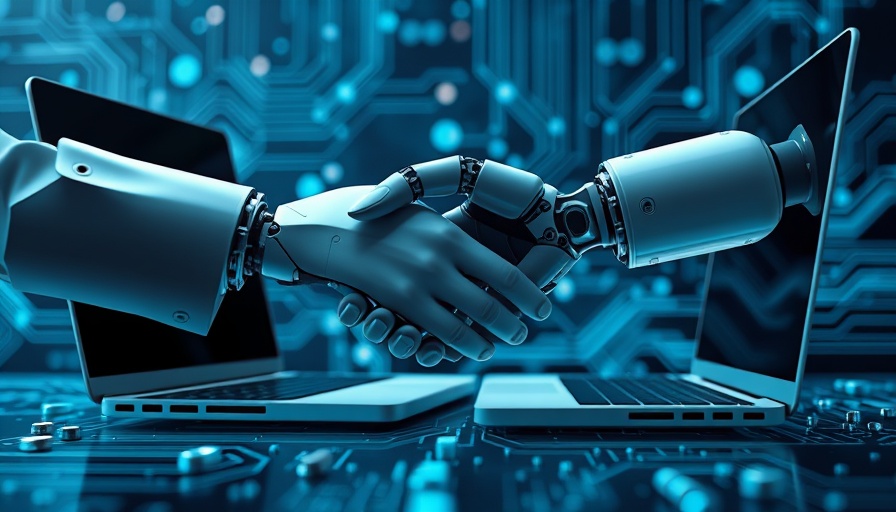
Understanding AI's Role in Content Creation
In an age where technology dominates communication, the integration of AI in content creation is undeniable. With businesses eager to leverage efficiency, AI serves as a powerful tool that churns out content faster than any human could. However, the challenge lies in striking a balance between production efficiency and fostering genuine human connection.
Why Human Connection Matters in Digital Marketing
While AI can generate articles, social media posts, and even emails, it often lacks the warmth that characterizes human communication. Professionals and marketers need to ensure their content resonates authentically with audiences. In fact, 70% of consumers lean towards brands that provide a personalized experience. Building emotional connections through storytelling can make a significant difference in engagement and conversion rates.
Effective Strategies for Humanizing AI Content
To merge AI’s capabilities with human touch, here are a few actionable insights. First, employ human oversight in the content review process to edit AI-generated content, adding personality and relatable anecdotes. Additionally, utilizing data-driven insights can help tailor messaging that aligns with audience preferences. By combining AI algorithms with a human understanding of tone and context, marketers can create a unique brand voice that stands out in crowded digital spaces.
Case Studies That Illustrate Success
The integration of AI with a human touch isn’t just theoretical; it has proven successful in many cases. For instance, numerous companies report a rise in customer engagement by adopting AI for data findings while letting their creative teams produce relatable content. Brands like Spotify have utilized AI to suggest personalized playlists, but it’s the curated communications that transform data into a heartwarming user experience.
Future Predictions: The Path of AI in Marketing
As we look toward 2025 and beyond, trends suggest that AI technology will further evolve, leading to more sophisticated tools capable of more nuanced content creation. However, the fundamental human need for connection will remain paramount. Companies that prioritize customer engagement strategies, alongside technological advancements, gear themselves for long-term success. Digital marketing will most likely rely on a hybrid approach where machines automate tasks while humans engage in building relationships.
Arriving at the Perfect Balance: The Key Takeaway
The future of digital marketing hinges on the delicate balance between efficiency and authenticity. Professionals and business owners must embrace AI to streamline their processes while ensuring that the content resonates on a personal level. This evolution in marketing requires ongoing education in the latest digital marketing tools and practices that put customer needs at the forefront.
 Add Row
Add Row  Add
Add 




Write A Comment